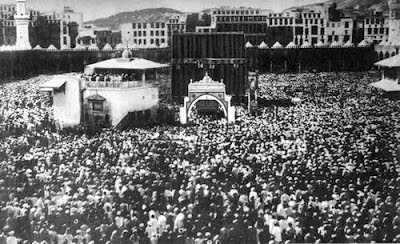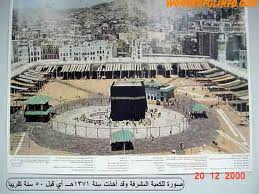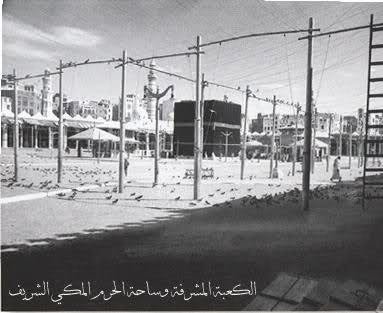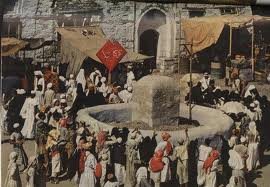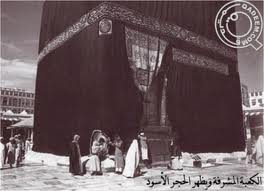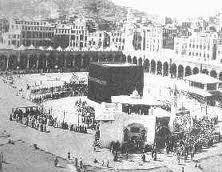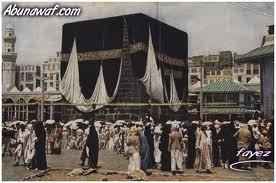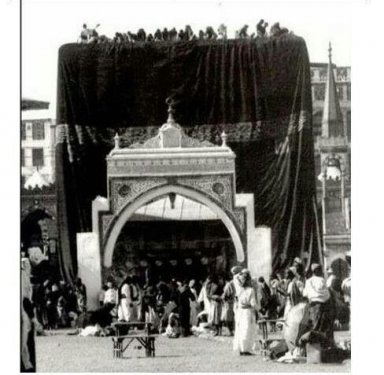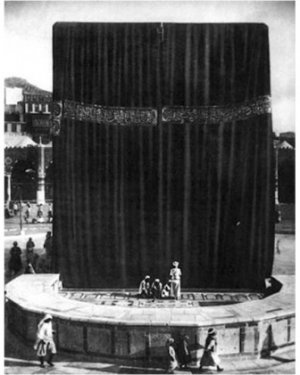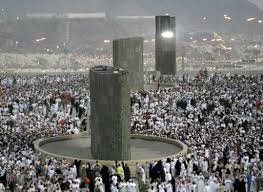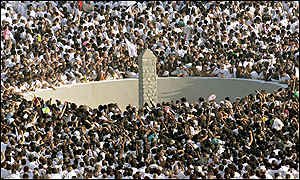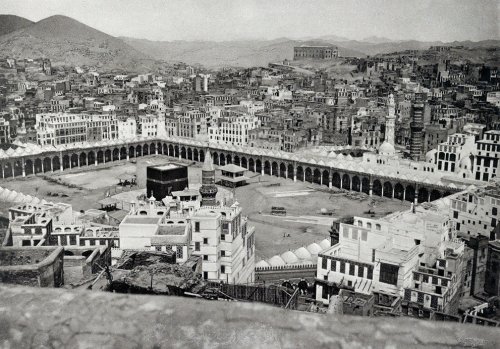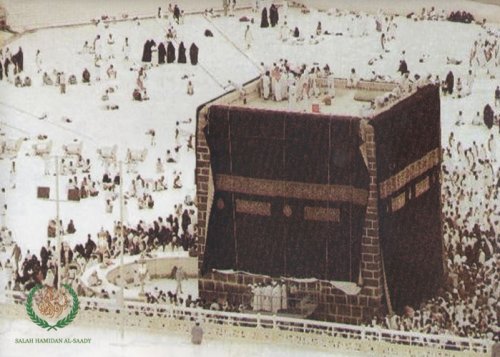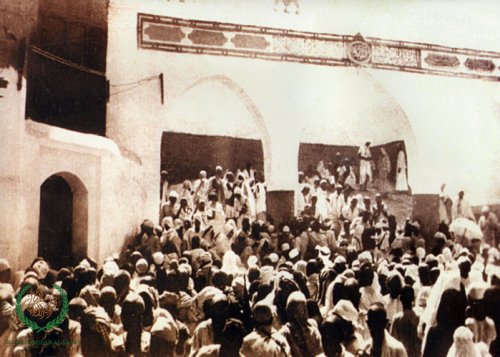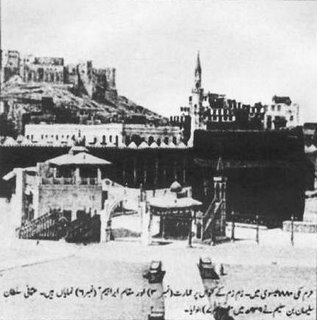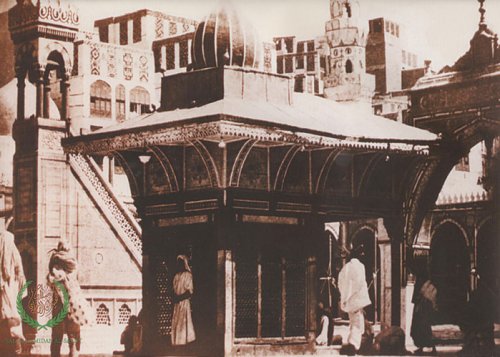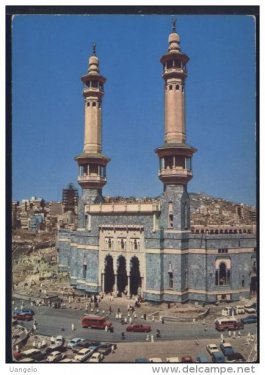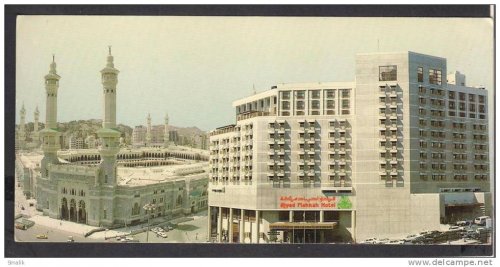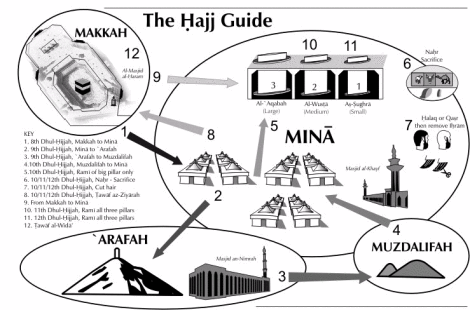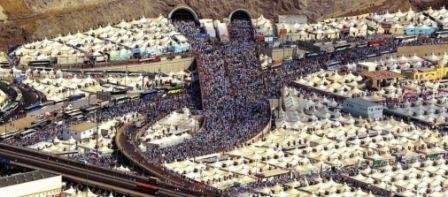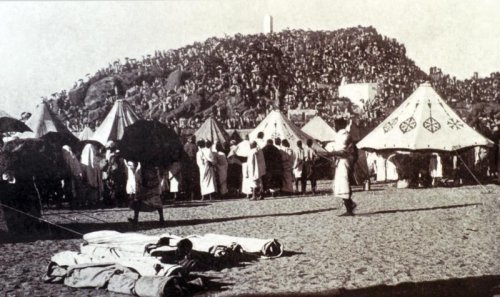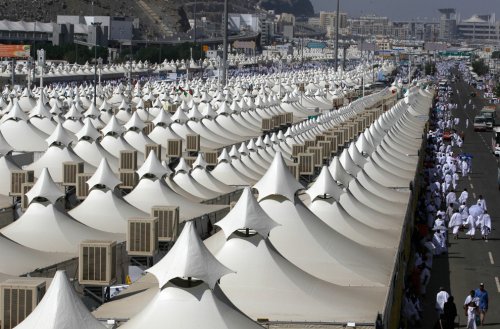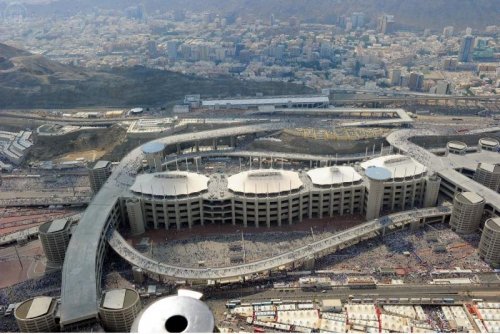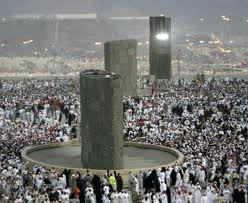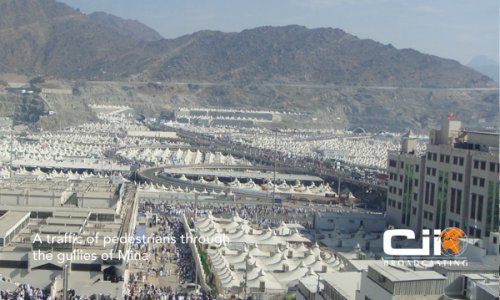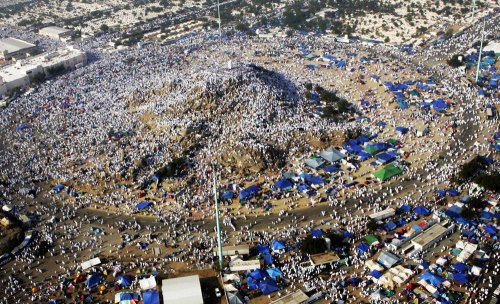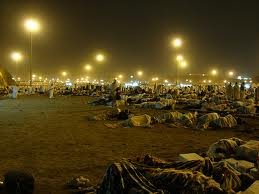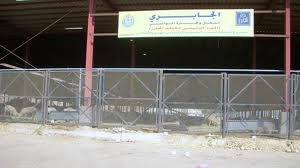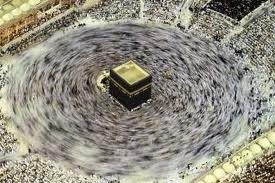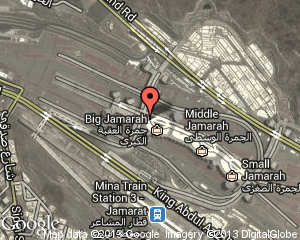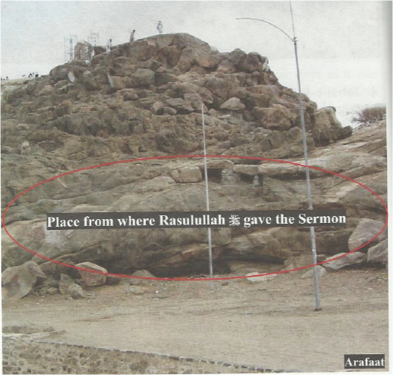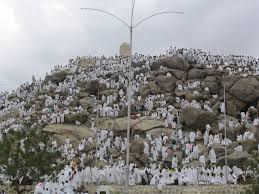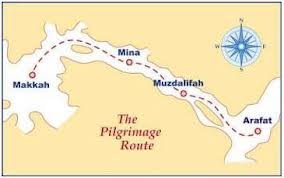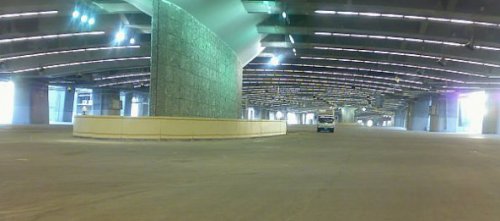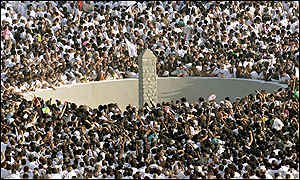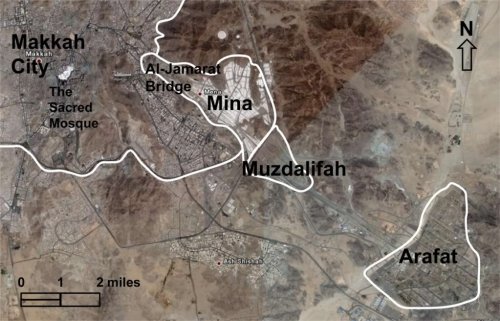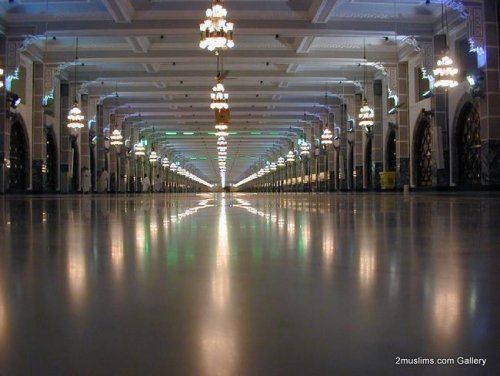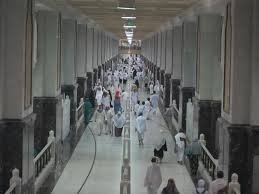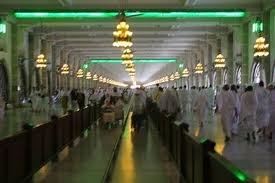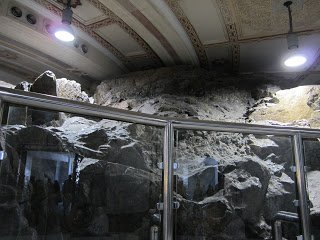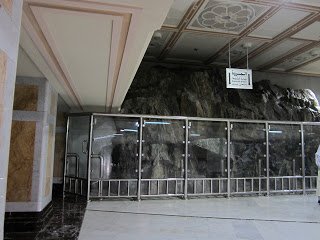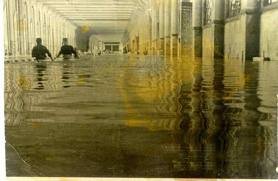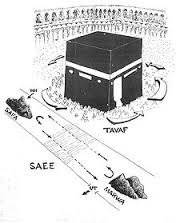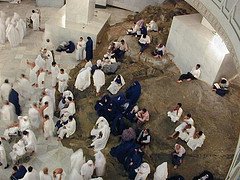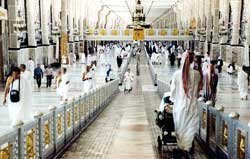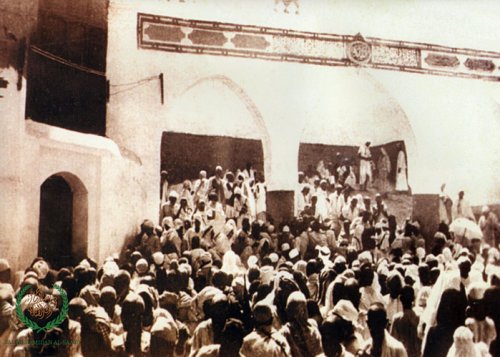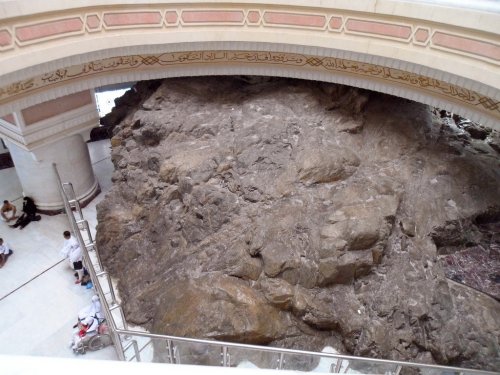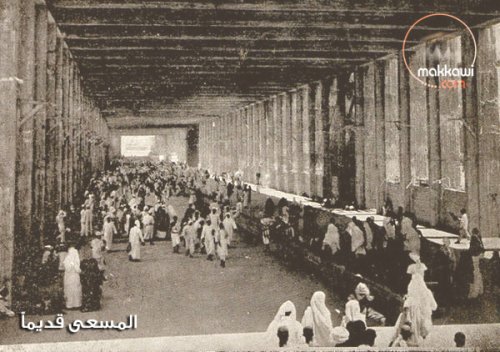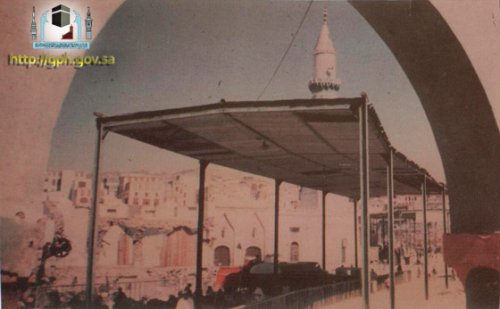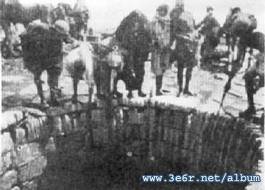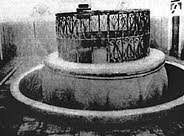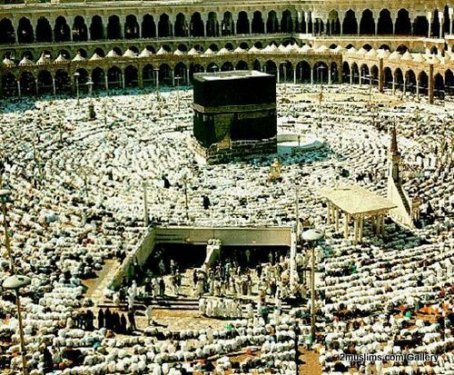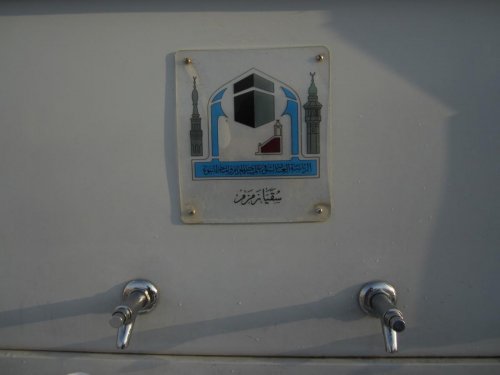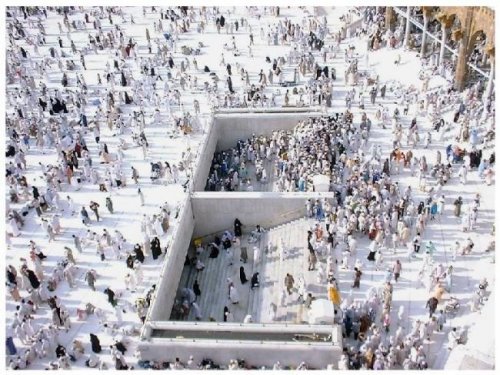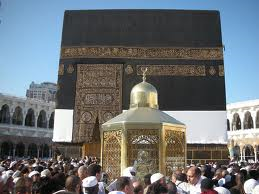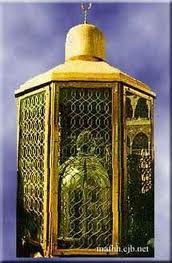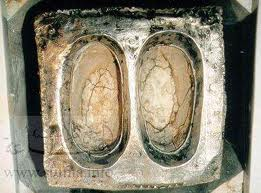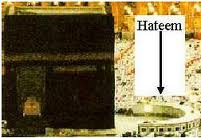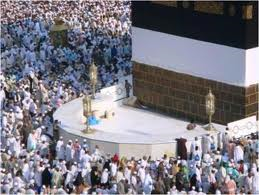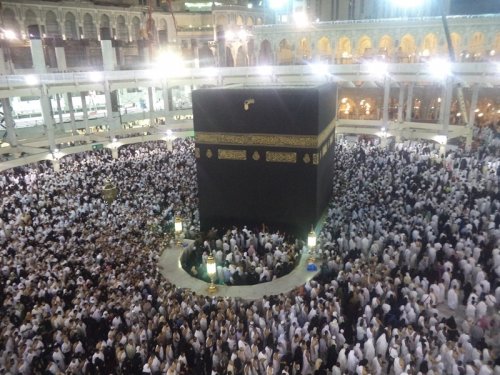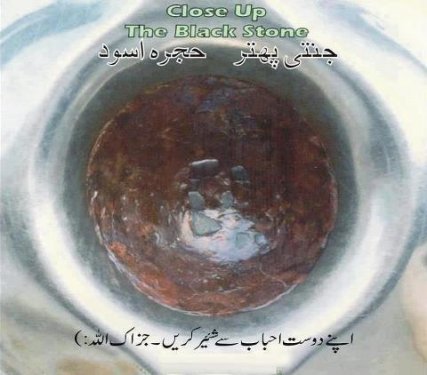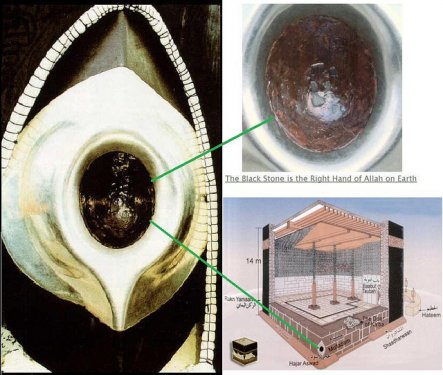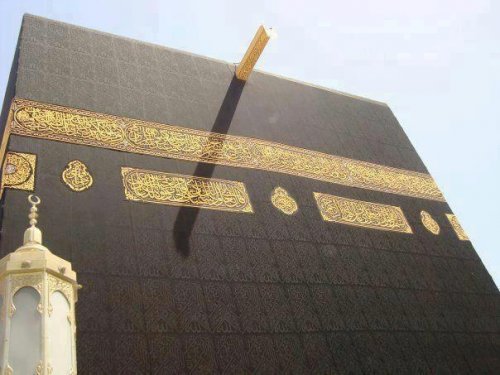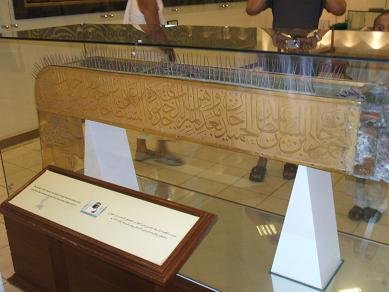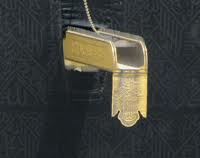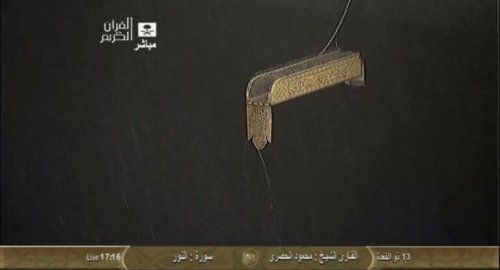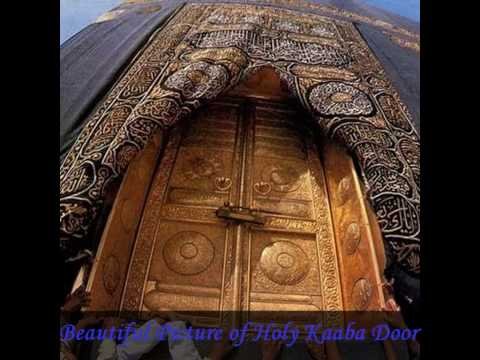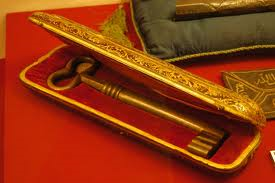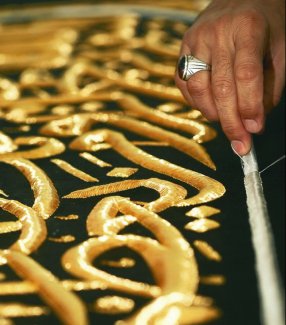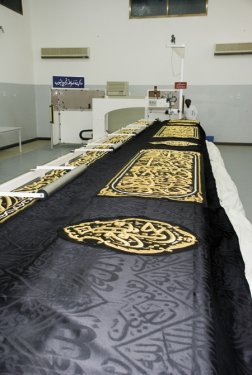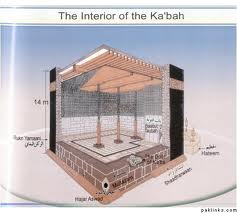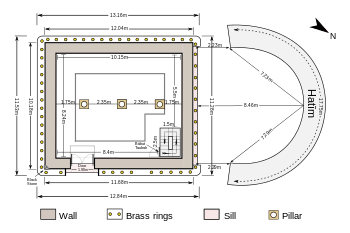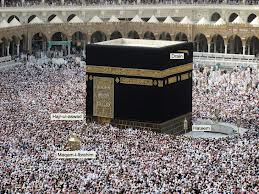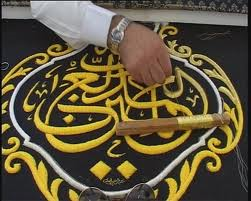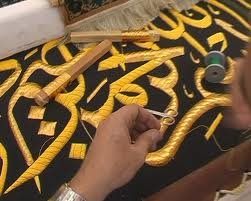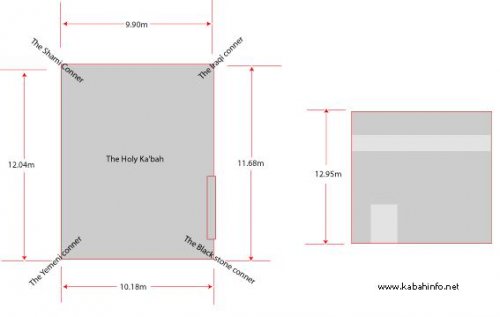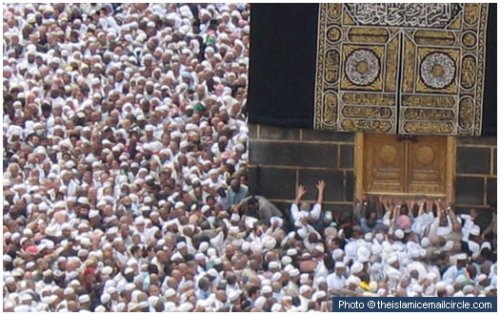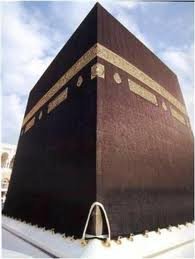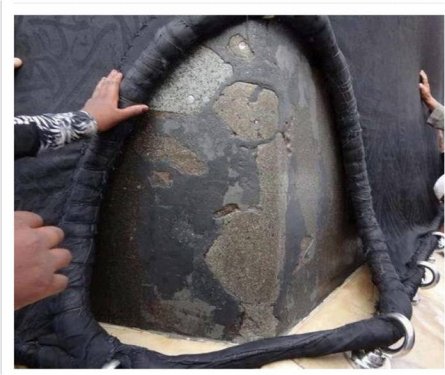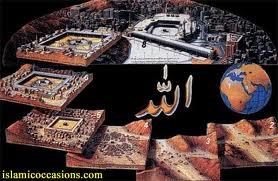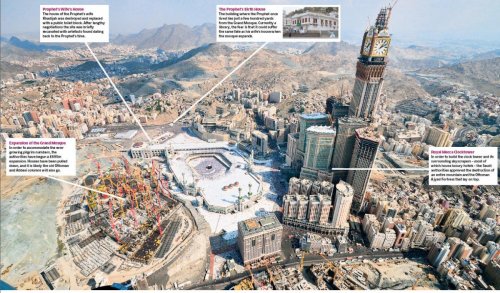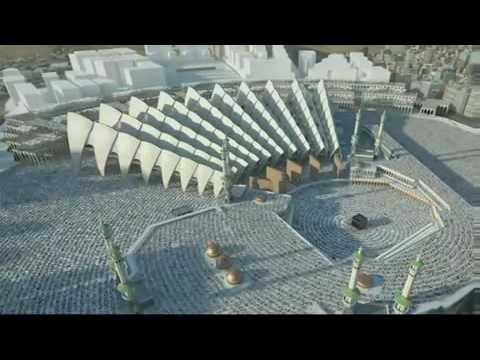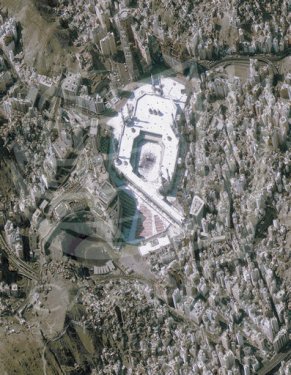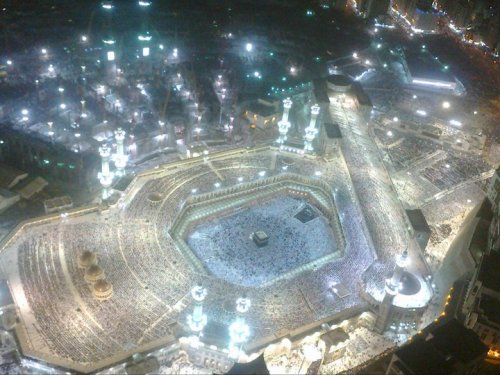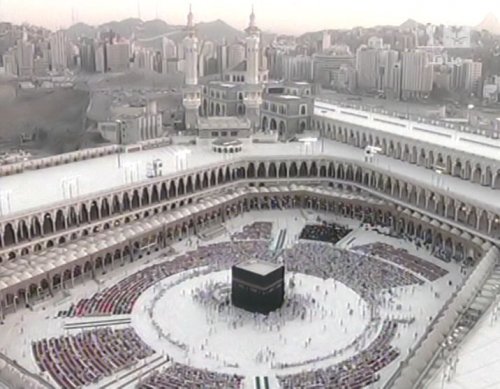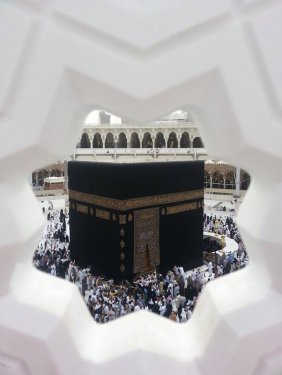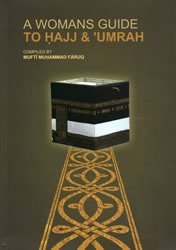-
Posts
8,434 -
Joined
-
Days Won
771
Content Type
Profiles
Forums
Events
Everything posted by ummtaalib
-
Some Old and Rare Pictures (click on pictures to enlarge) Note there is no forecourt in front of the Haram; cars are parked right in front of the Haram gate! Very Old Picture Haram 1889 Ka'bah Cloth Change (1982) The Jamaraat Sa'ee (Marwah End) 1908 Well of ZamZam 1908 Adventurer's photos capture a bygone Makkah Traveller Photographs Makkah in 1885
-
The Hajj Guide & Related Pictures Hajj Route Hajj Guide from "Women's Guide to Hajj & Umrah" by Mufti Muhammad Faruq DAY 1: 8th Dhul Hijjah From Makkah through the Tunnels (or by vehicles) to Mina Mina Tents where Hujjaaj spend the day DAY 2: 9th Dhul Hijjah Reciting Takbeer-e-Tashreek, Hujjaaj leave Mina, for Arafat and stay there till sunset Jabale Rahmah The Hill of Arafat is also known as Jabal ar-Rahmah, meaning Mountain of Mercy. On the ninth day of hajj, pilgrims leave Mina for Mount Arafat where they stand in contemplative vigil and pray and recite the Qur'an. It is here that Prophet Muhammad (peace be upon him) gave his last sermon to the Muslims who had accompanied him for the Hajj towards the end of his life. A pilgrim's Hajj is considered invalid if they do not spend the afternoon on Mount Arafat People climb to the top thinking that is where Rasoolullaah sallallaahu 'alayhi wasallam stood during Hajjatul Wida's Final Sermon which is incorrect. This picture is from "Women's Guide to Hajj & Umrah" by Mufti Muhammad Faruq Old Arafat Picture Night of 9th Dhul Hijjah People Spending the Night in the Plain of Muzdalifah Sleeping, Resting & Worshipping Pebbles being collected in preparation for the Rami DAY 3: 10th Dhul Hijjah Back to MIna to perform the Rami of the big Jamarah (Throwing seven pebbles at only the big pillar) Jamarat Bridge Inside the Jamarat Bridge Old Jamaraat Pictures with Hujjaaj throwing pebbles at the pillars AFTER RAMI OF DAY 3 & DAYS 4 & 5: 11th &12th Dhul Hijjah Rest of the Hajj Rites. Rami will be done again on the 11th & 12th of all three Jamaraat Final Rites of Sacrificing the Animal and Shaving the Head One Last Remaining Rite of Tawaafe Ziyaarah left. Back to Makkah...... Tawaafe Widaa (Farewell Tawaaf) done before leaving Makkah End of Hajj! May it be a Maqbool and a Mabroor Hajj for all who go!
-
The Mas'aa Where the Sa'ee is Performed Safa and Marwah are the two mountains between which Hajra (upon her be peace) rushed seven times to see if she could spot any water or anyone from whom she could get some in order to give to her infant Ismail (upon him be peace). This action is copied by all pilgrims performing Hajj or Umrah and is known as the Sa’ee. The strip of ground between Safa and Marwah is referred to as the Mas’aa. The Sa'ee consists of 7 rounds of walking between As-Safa and Al-Marwah. One round is completed when you begin from As-Safa and end at Al-Marwah. The return from Al-Marwah to Al-Safa completes the second round and so on.The Men should walk briskly between the green lights (located on the side of the walls nearer to As-Safa). Fence around the small mountains of Safa and Marwah Before the fences were put up, people used to climb up the hills and make du'a facing the Ka'bah The picture on the right was taken in 1908 (From muftisays.com) : Mas'aa in the Past masaa in past 1.bmp During the first Saudi extension (1955-73) The Masa'a (the gallery connecting the Rock of al-Safa' with al-Marwah) was extended to reach the mosque. The extension was built on two floors, with a structure of reinforced concrete arches clad in carved marble and artificial stone. This gallery communicates with the street and the mosque through eleven doors. The Rock al-Safa — from which the ritual walking (Arabic: سعى saʿy) begins — is located approximately half a mile from the Kaaba. Al-Marwah is located about 100 m (330 ft) from the Kaaba. The distance between Safa and Marwah is approximately 450 m (1,480 ft), so that seven trips amount to roughly 3.15 km (1.96 mi). The two points and the path between them are now inside a long gallery that forms part of the Masjid. (muftisays.com) Old Mas'aa Pictures Sa'ee in Water! New Mas'aa DAAB-BATUL ARDH OR THE BEAST FROM THE EARTH A short while after the event of the sun rising in the west, there will appear a strange animal. An earthquake will grip Mount Safaa in Makkah Muazzamah. The mountain will split open and a strange and wonderful animal will emerge. The animal will speak to people and will travel around the earth with great speed. With the Asaa (staff) of Nabi Musaa (AS), the Daab-batul Ardh will draw a glittering line on the forehead of Muslims. As a result, their faces will glow in a halo of heavenly light. With the ring of Nabi Sula Imaan (AS), this animal will stamp the noses or necks of the kuffar. As a result, their faces will be blackened. After performing this duty, the animal will disappear.
-
Zamzam Water Zamzam is the name of a famous well in al-Masjid al-Haraam which is thirty-eight cubits away from the Ka’bah. It is the well from which Allah quenched the thirst of Ismaa’eel the son of Ibraaheem (peace and blessings of Allah be upon them both) when he was an infant. His mother, Haajra (peace and blessings of Allah be upon her) looked for water for him, but could not find any. She climbed to the top of Mount al-Safaa, praying to Allah to help her and give her water for Ismaa’eel, then she climbed to the top of Mount al-Marwah and did the same. Allah sent Jibreel (peace and blessings of Allah be upon him) , and he struck the earth, and water appeared. Zamzam Taps Old Zamzam Well Old entrance into the Basement where Zamzam Taps were located Two entrances (One for men and one for women) used to lead down to a cool, wet basement where rows of taps were located and at the back, behind a glass barrier used to be the old well. From saudigazette.com In the history of the Zamzam well, there have been several significant milestones. The first was in 1964 when the use of buckets to draw water ended. It was replaced with taps after the late King Saud ordered the expansion of the mataf (circumambulation area). The mouth of the well was positioned below the mataf in a basement 2.7 meters deep. Pilgrims could descend to the well using a divided staircase, one for men and the other for women. The second phase was in 1979 when King Khalid issued directives to clean the Zamzam well using the latest available methods with the help of professional divers. This was one of the largest cleaning operations in the history of the well. This also resulted in an increase in the flow of water. The third phase was in November 1979, the well's second cleaning operation. Dr. Yahya Koshak, a Saudi academic, told Okaz/Saudi Gazette that the well was cleaned twice in the Kingdom’s history. He was given the opportunity to participate in both the cleaning operations. He said the Zamzam well is peculiar in the sense that the flow of water can be stopped for a period of time. Old and Rare Picture of the Zamzam well
-
The Maqaame Ibrahim (Abraham's Station) The Station of Abraham (peace be upon him) is considered as one of the appendages of the Holy Ka'bah and the Holy Mosque. It is the stone on which Abraham (peace be upon him) stood while building the Sacred House. His footprints are still visible there. This is one of Allah's permanent, Divine miracles. It is a place of forgiveness of sins for those who say their prayers behind it. The Holy Qur'an says that it should be taken as a place of prayer. AI-Mea'jan It is a small pit adjacent to the wall of the Holy Ka'bah on the eastern side between the Iraqi corner and the door of the Holy Ka'bah. It was said to be the site of the location of Abraham's Station. During the reign of Umar Ibn Al-Khattab (may Allah be pleased with him), the temporary site of Abraham's Station was restored to its original place after the flooding of Umm Nahshal. The pit is also the place where the Messenger of Allah (blessings and peace be upon him) performed prayer on the day of the conquest of Makkah, after leaving the Holy Ka'bah. It is also the place where Gabriel said his prayers. It is permanently closed now because people stumbled while performing tawaf around the Holy Ka'bah, but its place was marked by a square of marble in 1377 H. Opposite to it, there is a square piece of marble inscribed in Arabic but difficult to read. It is called the pit, the well, AI-Akhsaf and AI-Ghabghab. AI-Mustajar It is also called AI-Mutawwaz or AI-Mustatjab. It lies between the Yemeni corner and the closed door at the back of the Holy Ka'bah. It is called AI-Multazarn of the elderly of Quraish. It is also a place where supplications are answered by Allah, the Almighty. Source
-
The Hateem Hijir Ismail (peace be upon him) (The Hateem) It is the curved section to the north of the Holy Ka'bah on the side of the waterspout. It is called Al-Hateem because a part of it was demolished when Quraish reduced the area of the House while reconstructing it. It is a marbled area with a wall in the form of a semi-circle with an eastern and a western opening. It is about one and a half metres high, and has three lanterns for lighting and decoration. Visitors performing Salaah in the Hateem A part of it amounting to three cubits and a hand span is considered as a part of the Holy Ka'bah. It has been renovated more than twenty-five times. Source
-
The Black Stone (Al-Hajar Al-Aswad) Hajar al-Aswad (The Black Stone) is situated on the south-eastern corner of the holy Kaaba which marks the starting and finishing point for circling the Kaaba (known as tawaaf). Today, only parts of the stone are present; consisting of 8 pieces of varying sizes. These are affixed to a larger stone, encased in a silver frame and attached to the corner of the Kaaba about 1.5 meters above the ground. Prophet Muhammad (peace be upon him) informed us of three main virtues of the Stone: 1) Allah sent it down to earth from paradise whiter than milk; however the sins of mankind turned it black. 2) It will come on the Day of Judgment with two eyes with which it will see and a tongue with which it will speak and will testify for those who have touched it in truth and sincerity. 3) Touching the Stone is also one of the means by which Allah erases sins. It is a customary practice to touch and kiss the Black Stone (and not the silver casing around it). The Black Stone will be a witness on Judgement Day to all Muslims who have touched and kissed it in sincerity. It is the spot which has been kissed by the Prophets, Hajj and Umrah pilgrims and visitors.
-
The Water Spout (Meezaabe Rahmat) The Waterspout of the Holy Ka'bah The first waterspout was fixed by Quraish when they roofed over the Holy Ka'bah. It was made to drain into Hijir Ismail (peace be upon him). Abdullah Ibn AI-Zubair and AI-llajjaj Ibn Yusuf fitted similar waterspouts. AI-Walced Ibn Abdul Malik added some gilded tin plates to it. Caliphs and wealthy Muslims changed the waterspout several times and the last waterspout was presented by Sultan Abdul Majeed Khan in 1273 H. King Saud repaired it and the Custodian of the Two Holy Mosques renovated it. Source Rain Water through the Waterspout
-
The Ka'bah Drawing of The Ka'bah Drawing showing the Corners of the Ka'bah Inside the Ka'bah The Door of the Ka'bah In the time of Ibrahim AI-Khalil (peace be upon him), the door of the Holy Ka'bah was just a ductless entry. Asa'd Tubba III, one of the Kings of Yemen, erected a single-paneled door that could be locked and opened. Quraish added a double door. Then it was replaced and often decorated several times through history. It had a special key kept by Bani Shaiba and no other people or tribe can possess it, as instructed by the Messenger of Allah (blessings and peace be upon him). During the reign of King Saud (may his soul rest in peace), the present dimensions of the door were established: 318 centimetres high, 171 centimetres wide. It is elevated 222 centimetres from the floor of Al-Shadhrwan. The Key To the Ka'bah (Ottoman Period) Custody of the Holy Ka'bah Gatekeeping and custody are synonymous. It is a service of the Sacred House, opening and locking its doors. This was bestowed on Tasm, a tribe of Aad before Quraish. It passed to Khuza'a, then Qusai, who gave it to his son Abdul Dar, who handed it over to his son Othman. It shifted from one person to another until it rested with their nephew Shaiba. It is still inherited by their ancestors up to the present day. The Prophet (blessings and peace be upon him) handed the key to Bani Shaiba in' the year of the conquest of Makkah AI-Mukarramah, and said, "Take it, O Bani Talha, eternally up to the Day of Resurrection, and it will not be taken from you unless by an unjust, oppressive tyrant". The Covering of the Ka'bah (The Kiswah) The Making of the Kiswah A short video with details of the making of the Kiswah Article on the Kiswah The Multazam The area between the Hajar al-Aswad and the Door of the Ka’bah is called the Multazam. It is approximately two metres wide and is a place where duas (supplications) are accepted. The Multazam is an area where du’aas are accepted . It is sunnah to hold on to the wall of the Ka’bah in such a manner that a cheek, chest and hands are against the wall. It is reported that Abdullah bin Umar (may Allah be pleased with him) once completed the Tawaf, performed the salat and then kissed the Hajar al-Aswad. Thereafter, he stood between the Hajar al-Aswad and the door of the Ka’bah in such a manner that the cheek, chest and hands were against the wall. He then said, “This is how I saw Rasulullaah (peace and blessings of Allah be on him) do.” Abdullah bin Abbas (may Allah be pleased with him) says, “The signs of acceptance for any dua made between the Hajar al-Aswad and the door of the Ka’bah will certainly be seen.” The Rukn Yamani The corner before the corner of the Black Stone is the Rukn Yamani. Seventy Angels say "Aameen" when anyone passes by in Tawaaf and says: Closeup
-
Makkatul Mukarramah & The Haram (Click on pictures to enlarge) Through History The Haram (Showing Landscapes) Panorama View Sattelite View At Night In The Rain In the Future? The Ka'bah Check this out AMAZING, SUBHANALLAH! (zoom in and out using the mouse) Abu Mohammad on muftisays.com
-
A Woman's Guide To Hajj & Umrah By Mufti Muhammad Faruq About The Book A Woman's Guide To Hajj & Umrah helps to fill an often overlooked void in Shari'ah literature for the English speaking world. An example of traditional learning, Mufti Muhammad Faruq has sourced the research for this book exclusively from Qur'an, Hadith and Fiqh. He deals with every aspect of performing Hajj & Umrah for women, covers an extensive range of questions & answers and provides invaluable advice as well as a brief history of the sacred places. A comprehensive guide to Hajj and Umran for women. Question & Answers covering every situation a woman may encounter. A book worth buying and studying as preparation for Hajj/Umrah!
-
PRESENTED HERE ARE OUR COLLECTION of PICTURES! MAKKATUL MUKARRAMAH! MINA! ARAFAT! MUZDALIFAH! & Places of Historic Significance with Brief Notes! Idea taken from Makkah News & Updates & Makkah History Pictures and Information taken from Various Sources Old Pictures! New Pictures! History! (Click on pictures to enlarge)
-
Introduction: Following in the footsteps of great people is the tried and tested prescription to gain honour, respect and true greatness, in this world and the Hereafter. Among the great women who are indeed worthy of emulation was the wife of Moulana Muhammad Qaasim Nanotwi (rahimahullah). Moulana (rahimahullah) was a saint, luminary and outstanding personality of his time. He was the founder of the Darul Uloom Deoband, the blessings of which has reached the four corners of the globe. His wife was also a very pious woman who possessed great qualities which made her the perfect match for such a great scholar and saint. Due to her remarkable qualities, she earned such honour that while all the women respected her, even the great scholars and saints of the time had the highest regards for her. Furthermore, Allah Ta’ala had blessed her progeny in such a way that her son and grandson were both successful principals of the great institute, Darul Uloom Deoband. Presently her great-grandson is also a principal of a great institute in Deoband with thousands of students. Insha-Allah, over the next few weeks, we will discuss some of her great qualities and highlight the important lessons contained therein. uswatulmuslimah
-
When the Days of Eid and Jumu`ah coincide then the Jumu`ah Salaah does not fall off, to read it is Fardh. 1. Imam Zuhri (A.R.) said that Abu Wa`eed (A.R.) explained a Hadith to me that on the occasion of Eid ul Adhaa he was present with Hadhrat Umar ibn Khattaab(RA) . He performed Salaah before the sermon (Khutbah). Then he addressed the people and said: "O people! Nabi(SAW) prevented the fasting on the two days of Eid. One of them is Eid ul Fitr and the other is that in which you eat the meat of your (Qurbaani) sacrifice." Abu Wa`eed (A.R.) said then he was present for the Eid Salaah with Hadhrat Uthmaan Ghani(RA) which had coincided with the day of Jumu`ah. He also performed the Salaah before the Khutbah. Thereafter he gave the sermon and said: "O People! This is such a day in which two Eids coincide, whoever wishes to wait for Jumu`ah can wait, and whoever wishes to go and return, from my side has permission." (Bukhaari Vol.2 pg 825, Mu`atta Imam Maalik pg 165) 2. Hadhrat Umar ibn Abdul Aziz (A.R.) said that in the time of Rasulullah(SAW) two Eids had coincided, then Nabi(SAW) said that whoever loves that he will sit (for Jumu`ah Salaah) from the people of the household, then he should sit without any difficulty. (Kitaab ul Ummam Vol.1 pg 239) 3. Hadhrat Nu`maan ibn Basheer(RA) said that Nabi(SAW) used to read in the two Eids and Jumu`ah Salaah (سبح اسم ربك الاعلى and هل اتاك حديث الغاشية), many times the days of Eid and Jumu`ah had coincided with each other, then also Nabi(SAW) use to also read both these Surahs in both the Salaahs. (Tirmizi, Vol.1 pg 119, Nasai` Vol.1 pg 178) Hadhrat Imam Muhammad via the narration of Qaadhi Abu Yusuf (A.R.) narrated from Imam Abu Hanifah (A.R.) that Nabi(SAW) said when two Eids (i.e. Eid and Jumu`ah) coincide on one day then the first is Sunnat (i.e. it being Waajib is established from the Sunnat) and the second is Fardh (Jumu`ah) and none should leave out any one of the two. (Jaami us Sagheer pg 113) "Hadhrat Imam Shaafi`ee (A.R.) said that when the day of Eid ul Fitr is the same as the day of Jumu`ah, then the Imam should perform the Eid Salaah at the time it becomes permissible to read it, then whoever was from out of the city, then it is permissible for them, if they wish they can return to their families and they do not have to return to read Jumu`ah Salaah. They have a choice that he can either wait to read Jumu`ah, or go and come back if they are able to, and if they do not do this, then there is no harm in this also Insha-Allaah. Imam Shafi`ee said that it is not permissible for anyone of the city to leave out the gathering for Jumu`ah unless he has a valid excuse even though it be the day of Eid. There will be no difference in the law regarding the day of Eid ul Adhaa, if it was in such a city in which Jumu`ah is permissible, as well as Eid Salaah. For the villagers and there will be a choice and the people of Mina will not perform the Salaah of Eid ul Adhaa nor Jumu`ah Salaah, because it is not a big city." (Kitaabul Umam Vol.1 pg 239) Allaamah Zarqaani (A.R.) (passed away in the year 1122 A.H.) said, Ali, Ibn Wahab, Muttarraf and Ibn Maajishoon (A.R.) said that according to the narration of Imam Maalik, they have all negated the narration of Abuil Qaasim in which there is prevention (i.e. that this narration is not authentic) and upon the permissibility of this (i.e. that for the people of the village etc. to leave out Jumu`ah is permissible) is the saying of Imam Shaafi`ee and Hanafi (A.R.) (شرح الزرقانى على مؤطا الامام مالك Vol.1 pg 364) Allaamah Badrudeen A`inee (A.R.) said: - "And in a Mahallaah (part of a town) and Ashraaf (amongst nobles) Hadhrat Uthmaan Ghani(RA) performed Eid Salaah then he gave the sermon and said, for you today two Eids have gathered, therefore from the people of the household whoever likes that he should wait for it, can wait for it. Whoever wishes to return to his home has permission from my side. We will perform the Jumu`ah Salaah. Hadhrat Uthmaan t's saying (انا مجمعون) that we will definitely perform the Jumu`ah Salaah is a clear proof of this command, that to leave out Jumu`ah Salaah is not permissible. Ibn Abdul Barr (A.R.) said that the discarding of the Jumu`ah and Zohr Salaah due to the Eid Salaah is (متروك) left out, rejected, not reliable, how can this be reliable. The permission given by Hadhrat Uthmaan(RA) to leave out Jumu`ah was to the people of the household upon whom Jumu`ah was not Waajib." (البناية في شرح الهدايةVol.2 pg 1019) Ibn Hazam (A.R.) said: "When the day of Jumu`ah and Eid join then first read the Eid Salaah, thereafter read the Jumu`ah (which is necessary) and no authentic Hadith is contrary to this. Abu Muhammad (Ibn Hazam) said that Jumu`ah is Fardh and Eid is (تطوع) Nafl, and (تطوع) a Nafl cannot make a Fardh be discarded." (المحلى للابن حزم Vol.3 pg 93) It is established from the Noble Verses of the Qur`an, the Mubaarak Ahaadeeth and sayings of the Muhadditheen that if Eid and Jumu`ah gather on one day, to read both Salaahs is necessary. The compulsion of Jumuah does not fall away because of the Eid Salaah. The reason is that Jumu`ah is Fardh which is established by the mubaarak (blessed) verse of the Qur`an "يآيّها الّذين آمنوا اذا نودى للصلوة ....الاية" under which all the Jumu`ah Salaahs will come under and in which there are no exceptions. Likewise in the treasure of Ahaadeeth, such Ahaadeeth are found from which it becomes known that Nabi(SAW) had given very stern warnings for the leaving out of the Jumu`ah Salaah without an excuse. The demand of these Ahaadeeth is that Jumu`ah must be read and never left out irrespective of the day it occurs. This was also the Mubaarak action of Nabi(SAW) , that if Eid and Jumu`ah had both coincided on one day, then Nabi(SAW) use to read both Salaahs. It is not established from any authentic Ahaadeeth that Nabi(SAW) had read Eid Salaah and not read Jumu`ah Salaah on any such occasion. Instead, the habit of Nabi(SAW) was that he r on such occasions use to read both Salaahs. Hadhrat Nu`maan ibn Basheer(RA) said that if Eid and Jumu`ah coincided on one day then on that day Eid and Jumu`ah Salaah, in both Nabi(SAW) used to read it. (As is clear from hadith number 3) This hadith clearly establishes that Nabi(SAW) used to read both Salaahs on such an occasion. Nevertheless, Nabi(SAW) had given permission to those people of the household upon whom Jum`uah was not even (Fardh), that you go if you wish, as it is apparent from hadith number 2. The habit of the Khalifa e Raashid Hadhrat Uthmaan Ghani(RA) was also this, that if Jumu`ah and Eid had both gathered on the same day, then he use to read both Salaahs. Nevertheless, he had given permission to those people of the household upon whom Jum`uah was not even Fardh, that if you wish to stay for Jumu`ah, then stay, and if you wish to go, then go. The Aimmah e Mujtahideen, Hadhrat Imam Abu Hanifah (A.R.), Hadhrat Imam Maalik (A.R.) and Hadhrat Imam Shafi`ee (A.R.) all say that if Jumu`ah and Eid coincide, then both Salaahs must be read with compulsion, and none of them will be left out. Nevetheless, for the villagers upon whom Jumu`ah is not Fardh, is concession, as the words of Jaami` us Sagheer, Kitaabul Umm, and Sharah of Zarqaani testify. The mas`ala of Ibn Hazam is the same also as it is clear from the wording of Mahallaa (محلى). Allaamah ibn Abdul Barr Maaliki (A.R.) said that whoever said that the Jumu`ah Salaah will be left out because of the Eid Salaah, the saying left out, rejected, are not reliable and not worthy of being considered. Contrary to the noble verses of the Qur`an, Mubaarak Ahaadeeth and sayings of the Muhaditheen, the Ghair Muqallideen say that day where the Eid and Jumu`ah coincide, the compulsion of the Jumu`ah Salaah falls and there is concession for the Jumu`ah Salaah, if he wishes he can perform it and if not, then not. Mia Nazeer Husain Saheb was asked: - "If coincidently both the day of Eid and Jumu`ah had coincided, then is there any concession in the performing of the Jumu`ah Salaah or not. Zaid had not read the Jumuah on such a day and said that I had revived a dead Sunnat, how can he say this? In the answer to this question his student Molwi Abdur Rahim writes:- "When the days of Eid and Jumu`ah gather, then on that day there is a choice, whosoevers heart desires to read Jumu`ah can read it and whoevers heart does not wish to read does not have to read. And on those such days Zaid did not read the Salaah and said that I had revived a dead Sunnat, then to say this is good. (Fataawa e Nazeeriyya Vol.1 pg 573) NOTE: This is an authenticated Fatwa of Mia Nazeer Husain Saheb Delwi Nawaab Waheed uz Zamaan writes: - "And when Jumu`ah and Eid coincide on one day, then there will be concession in the Jumu`ah and the apparent thing is this concession is general for all the people as well as the Imam." (Arful Jaadi pg 43) Nawaab Waheed uz Zamaan Saheb Raqmatraaz: - "And Jumu`ah on the day of Eid there is general concession for the people of the town and besides them. If they wish they may read both, and if they wish they can only read Eid Salaah and not Jumu`ah. Nevertheless regarding the leaving of the Zohr Salaah there is a difference of opinion." (Nuzulul Abraar Vol.1 pg 155) Conclusion: The compulsion of Jumu`ah is established from clear Nass (proof from Qur`an) in which there is no exception. Nabi(SAW) has given severe warnigs to the ones who left out the performing of Jumu`ah without a valid excuse. In your time if both Eid and Jumu`ah gather on the same day then you read both, certainly for those upon whom Jumu`ah is not (Fardh) (i.e. the people of the village) they have been permitted to go if they wish. The people of the city all have to read Jumu`ah and Eid Salaah with you. Khalifa e Raashid Sayyidina Uthmaan Ghani(RA)'s habit was also the same. The saying of the Aimmah e Mujtahideen is also the same that if Jumu`ah and Eid both gather on the same day, then both Salaah will be read. Allaamah Ibn Abdul Barr Maaliki (A.R) has decided that those people who omit the Jumu`ah Salaah because of the Eid Salaah their saying is (متروك) left out, rejected, not reliable and not worthy of being considered. However the Ghair Muqallideen have looked elsewhere and stipulated that there is concession in the leaving of the Jumu`ah which means that if anyone reads then it is correct, and if anyone does not read it, then that is also correct. Instead, according to them, not to read the Jumu`ah Salaah is the reviving of a dead Sunnat. (ولا حول ولا قوة الا بالله) Respected reader, is the opposing of the Noble Qur`an and the action of Nabi(SAW) in order to act according to your opinion and pleasure conforming to the Sunnat or contradicting it? AlIslam.co.za
-
Q. How Should One Greet Others On The Day Of Eid? A. Greetings of Eid can be exchanged from the commencement of Shawwaal. It is not necessary to wait till after the Eid Salaah to greet each other. The prescribed words of congratulating others on the day of Eid al-Fitr are: تَقَبَّلَ اللَّهُ مِنَّا وَمِنْكَ Transliteration: “Taqabbalallahu Minna wa Mink” Translation: May Allah accept our and your Ibadah It is recorded that once a Sahabi met Rasulullah (Sallallahu Alaihi Wasallam) on the day of Eid and said to him: “Taqabbalallahu Minna wa Mink” (May Allah accept our and your Ibadah). Rasulullah (Sallallahu Alaihi Wasallam) replied: “Yes, Taqabbalallahu Minna wa Mink”. وقد روى بن عدي من حديث واثلة أنه لقي رسول الله صلى الله عليه وسلم يوم عيد فقال تقبل الله منا ومنك فقال نعم تقبل الله منا ومنك It is also recorded that the Sahabah used to say to each other: “Taqabbalallahu Minna wa Mink” when they used to meet each other on the day of Eid. عن جبير بن نفير قال كان أصحاب رسول الله صلى الله عليه وسلم إذا التقوا يوم العيد يقول بعضهم لبعض تقبل الله منا ومنك (Fathul Bari, Vol:2, Pg:446, Darul Ma’rifah) And Allah Knows Best Mufti Suhail Tarmahomed Confirmation: Mufti Ebrahim Desai Fatwa Department Jamiatul Ulama (KZN) Council of Muslim Theologians
-
Atlas of the Qur'an Places, Nations, Landmarks Compiled by Dr. Shauqi Abu Khalil
-
Madinah Munawwarah Virtues & Etiquettes Visiting the Rowdhah Places of Significance Prepared by Madrasah Ta'leemuddeen
-
HISTORY OF AL-MADINAH AL-MUNAWWARAH Sheikh Saifur Rahman Mubarakpuri
-
HISTORY OF MAKKAH by Shaikh Saifur Rahman Mubarakpuri
-
Hayatus Sahabah by Mawlana Muhammad Yusuf Kandhelwi The steadfastness in the face of hardship... Abstinence & Self-Denial... Piety & Scrupulousness... Devotion to Salaah... Sympathy & Self-Sacrifice... Valour & Heroism... Zeal for Knowledge... and Much More A Must Read
-
The Battles of the Prophet Ibn Kathir The Battles of The Prophet.pdf
-
Biography of Mawlana Saeed Ahmen Khan Saheb Biography Maulana Saeed Ahmad Khan Makki who established work of Tableegh in Arab World Hadhrat Maulana Sa'eed Ahmad Khan Sahib Muhajir Makki [nawwarallahu marqaduhu] was born in the year 1903 a few miles away from Saharanpur, India. At the age of fifty years, he enrolled at the renowned Madrasah Mazahirul 'Uloom after being greatly influenced by the writings and teachings of Hadhrat Hakeemul Ummah Maulana Ashraf 'Ali Thanvi [rahimullah]. Almost seven years later he graduated after acquiring sacred knowledge from eminent scholars, like Shaykh al-Hadith Maulana Zakariya sahab, Maulana Abdul Lateef sahab, Maulana Abdur Rahman sahab, Maulana Asadullah sahab, Maulana Abdush Shakur sahab, Maulana Akbar 'Ali sahab and Mufti Mahmud al-Hasan Gangohi [may Allah be pleased with them all]. After that Maulana did serve the Madrasah for approximately a year in shape of teaching and writing verdicts. During this year he visited as well Maulana Ilyas Kandhalvi [rahimullah] several times, who sent him to Mewat in Jama'at as well. Later this bond between Hadhrat-ji Maulana Ilyas and him became so strong, that he became a mukeem [habitant] at the Nizamuddin Markaz and he became even more enganged in the effort of Dawah and Tabligh as before. After the demise of Maulana Ilyas, Hadhrat-ji Maulana Yusuf was appointed as the Tablighi Ameer and as we know he had a global vision and through the Blessing of Allah Ta'ala in his time the effort spread into far away places. To accomplish this vision Maulana Sa'eed Ahmad Khan sahib was sent to Makkah Mukarramah and after some difficulties (from the Saudi goverment) he decided to make the Holy Lands his permanent residence. Due to some Deeni tasks Hadhrat Maulana 'Ubaydullah Balyawi [rahimullah] had to move back to Hindustan and Maulana Sa'eed Ahmad Khan sahib became his successor in being Amir of Saudia Arabia. Despite all his responsibilities and engagements in the effort of Deen, he remained very cautious of the inner purification and thus traversed the path of Suluk under the guidance of Shaykh al-Hadhit Maulana Muhammad Zakariya [rahimullah] and was even granted khilafat. To Maulana's outstanding characteristics belonged his humbleness, generousity, respect for others, wisdom and insight and many other sublime morals. Many people can testify to this. In the later years he became very weak due to his high age and severe illness on top of that. He eventually had to move (back) to Pakistan. But despite all these hardships he would not compromise on the effort for the Deen and even in this state complete the recitation of one whole Qur'an every day. Hadhrat Maulana 'Umar Palanpuri [rahimullah] would refer to Maulana as the "Imam Ghazali of Tabligh". 1998, Maulana Sa'eed Ahmad Khan sahib went for 'Umrah and passed away in the blessed city of Madinah on the 14th November. May Allah Ta'ala forgive him and elevate his rank in Jannah. Reference: http://www.sunniforum.com/forum/sho...saab-Maulana-Saed-Ahmed-makki-amp-Hafiz-Patel
-
Maulana Saeed Ahmed Khan Sahib Dawat Ka Kaam
-
Maulana Saad Sahib Deen E Islam Ka Paigham


